There's a Goddess in the Cotswolds
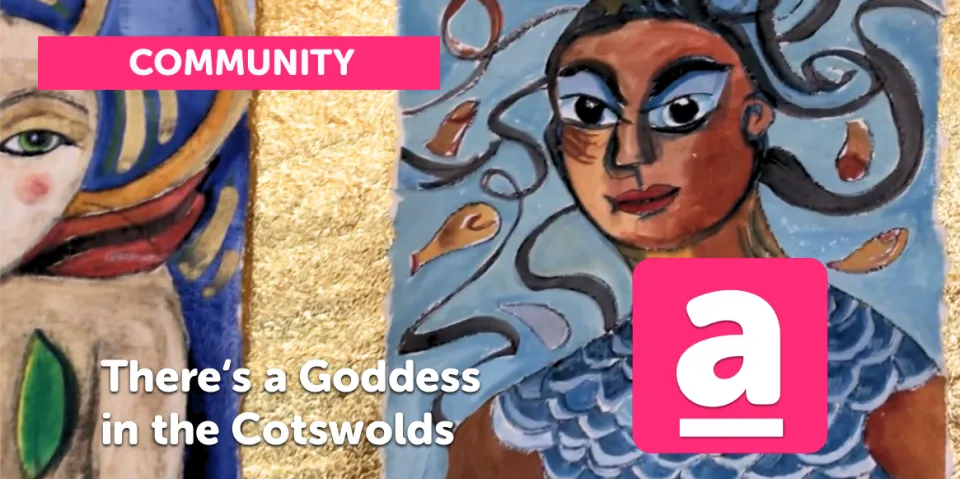
April 2025
As a former biologist, a designer, and now as an artist of multiple feminisms, I am well used to constellating divergent worldviews into my thinking and work.
But whilst I have always known I wanted to be artist, and did become a scientist, the development of magic and spirit in my practice has emerged in more recent years - and significantly through the opportunities and people I have met through being in Stroud.
It was 2021 when the creation of a Goddess Temple in Stroud came into my awareness, and I was later invited to be a co-Director. Initiators Bliss Magdalena Qadesh and Kate Dineen had devised a wheel of 9 ancient Goddesses from across Europe, with our own Cotswolds Goddess Cuda and her three Cuculatti (or hooded figures) at the centre.
This model of the Goddess wheel is used in other Temples, and allows for a central figure surrounded by eight "seasonal" Goddesses, each representing different energies of nature, colours, aspects of the Self and more.
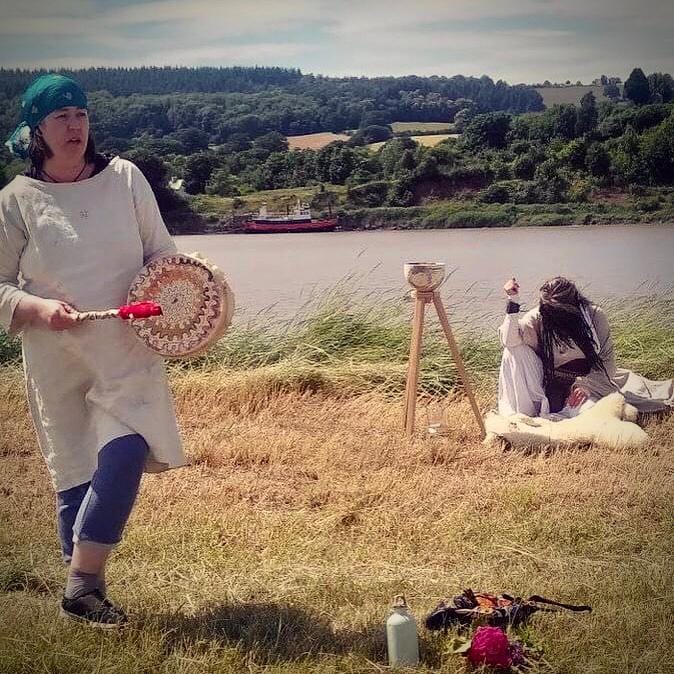
After two years of study and practice, I 'dedicated' with the first cohort of ten PriestXesses in April 2024. Dedication is a day-long ceremony where we commit to serving the Goddesses we choose.
The morning is spent in preparation with rituals and decorating each other. Each participant creates their own process for the dedication, and we all witnessed each other, held by members of the faculty, followed by celebration and certificates.
My world has completely changed in the past few years, and so I feel has "the world". I am part of this wider shift, a search for new modes and institutional possibilities, and I feel immensely privileged, and still surprised, by these opportunities and invitations that have presented themselves here.
Who is Cuda?
A pre-Roman Goddess of the Cotswolds, Cuda is known only from fragments of archaeology that represent her as an archetypal Goddess of food, abundance and nourishment.
Accompanied by three hooded figures, known as the Cuculatti, or "genii of place", she is understood in Stroud's Goddess Temple as a Goddess of Stone, Stream and Sky, offering many rich gifts to the people and land where the chalk streams burble out of the hills.
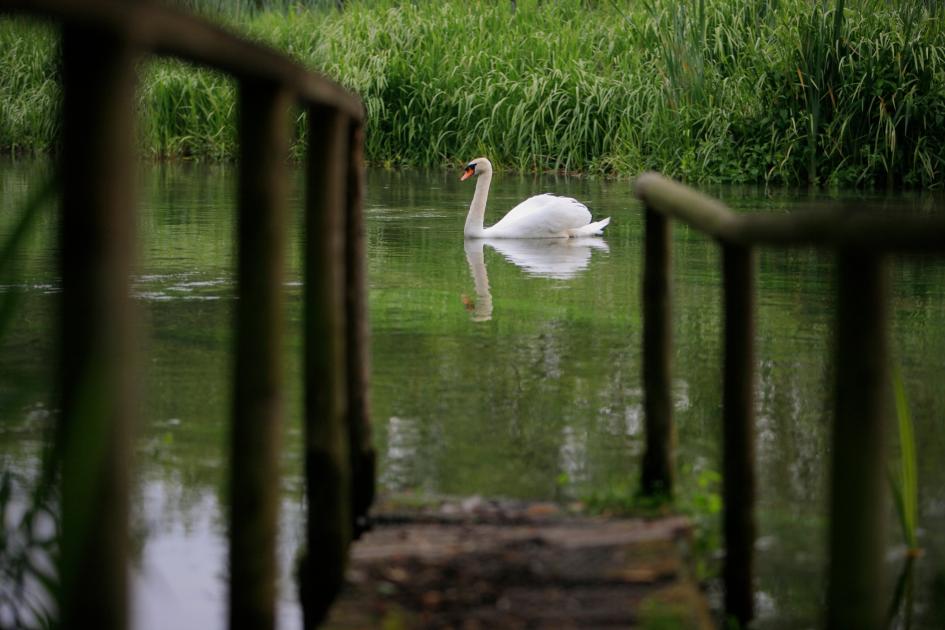
There are 200 chalk streams in the world and the majority are in Britain
It's even possible that Cuda is an origin for the word Cotswolds, according to scholar Dr Stephen J Yeates, who wrote in 2008:
“The name Cuda may also have a deeper importance for the region today as it may be the predecessor of the word Cotswolds itself. This may have changed over the years from 'Cuda' to 'Coda', then to 'Cotta', and lastly to 'Cots'. 'Wold' may come from the Saxon 'wald' for forest, effectively naming the area Cuda’s Forest, after the area where the goddess Cuda presiding, although this is just one of many theories.”
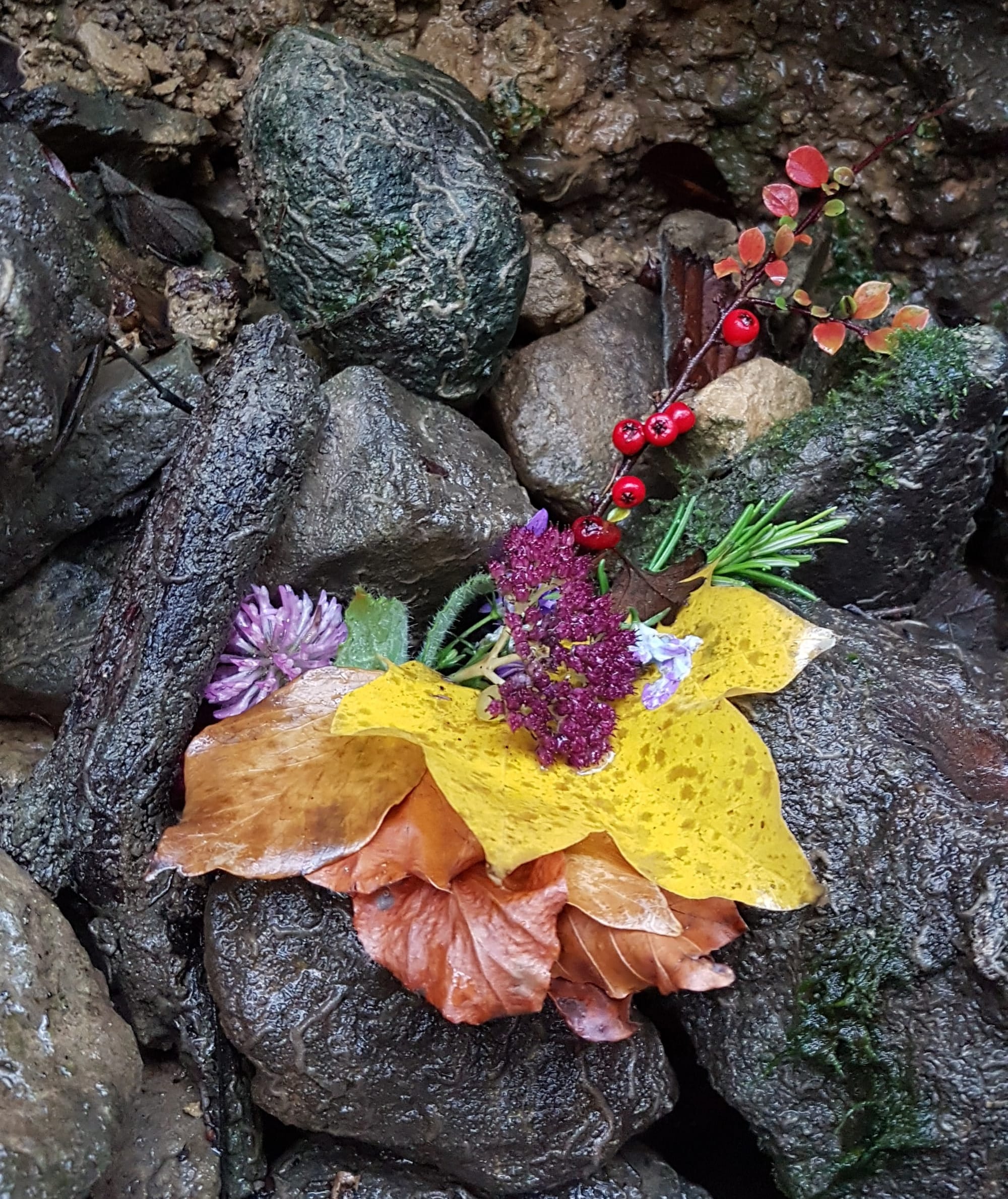
Local celebrant and shamanic healer Kate Dineen began her connection with Cuda and the Cuculatti some years ago. She told me:
"My experience of Cuda as our local spirit of place is both unseen and felt, as well as physically manifest. I make offerings to mother Goddess, who appeared after a couple of years of [my] going to the waterfall and praying to Cuda, our local spirit of place."
Where do Goddess Temples come from?
The Eco-Feminist movement in the 1970s was an important foundation for the growth of these Temples.
The Greenham Common protests against nuclear arms, the paintings and writings of Monica Sjoo, the work of ritualist and witch Starhawk, and artists like Ana Mendieta and Judy Chicago, exploring feminine aspects of spirituality, often referred to as the “divine feminine”.
These movements and modes are also influenced by pagan practices such as Wicca and Druidry, and are connected with paganism as a kind of sub-branch. The Temple offers an alternative to the Christian churches of which Stroud, like most towns, has an abundance.
Pagan and nature-based religions and spirituality are not taught in the school curriculum, and only occasionally appear as options on demographic statistics forms.
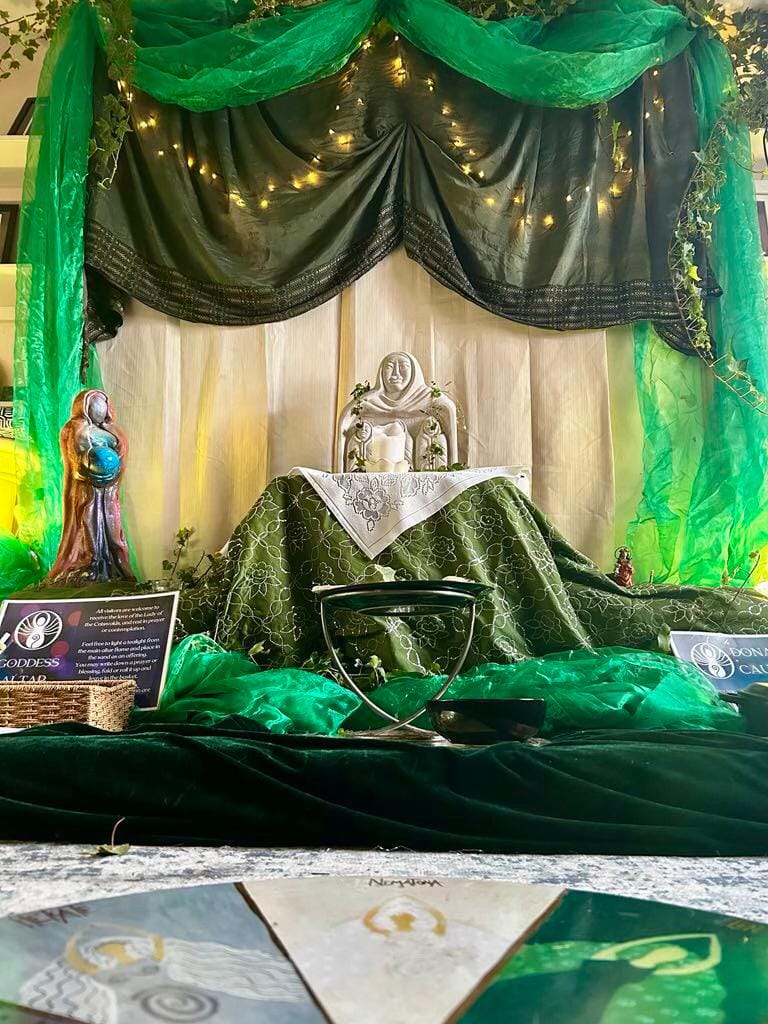
The world's dominant religions are patriarchal and feature mostly male Gods or leadership figures. Sometimes there are female counterparts, and older or nature-based spiritual systems often feature non-binary, transgender, agender or multi-gender deities. Sometimes these are shapeshifters, figures that can become animal or human with fluid identity.
It’s hard to say exactly how many Goddess Temples there are in the UK, but we do know it's a growing movement and they are “popping up” around the country.
Glastonbury has, by far, the most established and well-known Temple, and as a Community Interest Company the Stroud Temple draws many of its practices and teachings from the Glastonbury model and traditions.
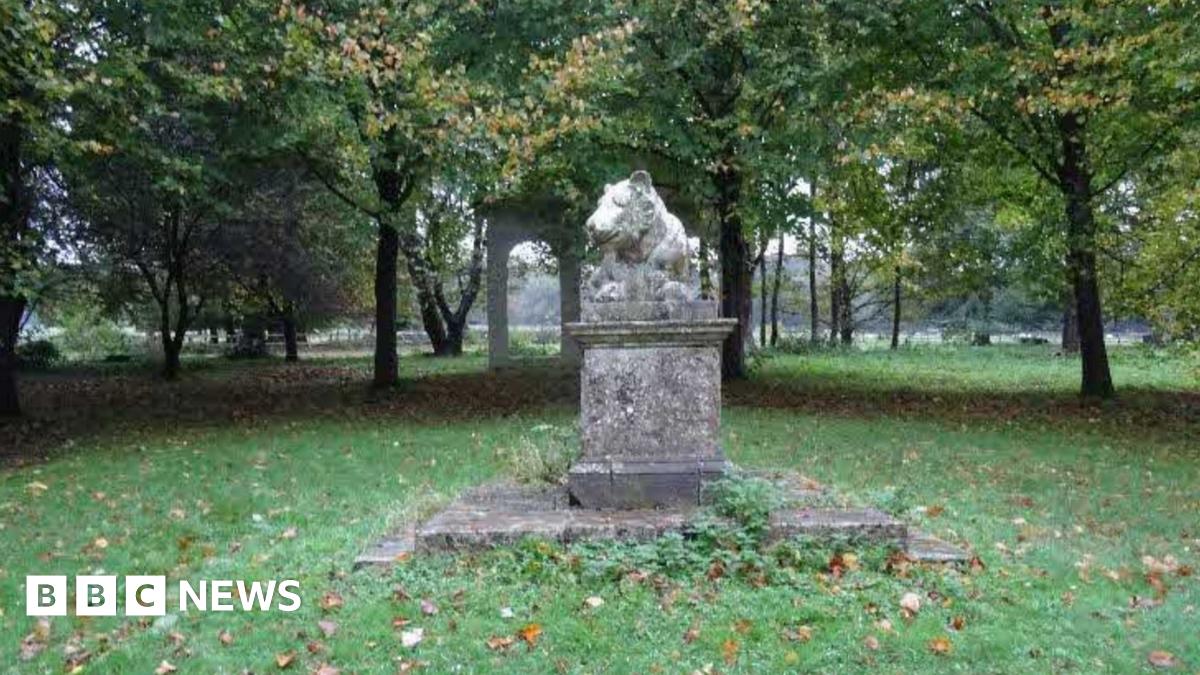
Goddess Temples are open to anyone of all genders and faiths, and none. Through these spaces we are generating inclusive, creative ways to form community, spaces for deeper connection with each other and the land and spirits of place wherever we find ourselves.
I believe the Goddess movement is a place where the experiences of female bodied people can be centred and celebrated in a spiritual way, whilst also opening space for the "divine feminine." That means opening up possibilities for men and all our nonbinary siblings to explore what may be cut off by male-dominated ritual and sacred space.
Cis men often ask me whether they are "allowed" to visit the Goddess Temple. My reply is to say, may I visit the church? Because it's clearly a male figure and God in there, and perhaps I feel I am not allowed. Welcome to what it's like! If you can conceptualise the feminine as sacred in multiple dimensions, then you will find your connection.
Goddess spaces are pagan spaces - this connects us to our pre-Christian culture and to indigenous practices from around the world.
Nature doesn't have moral codes so much as various energies, and through the Priestessing we learn about all these energies, gendered and sexualised or not, and how to work with them rather than seek to control, dominate or oppress.
This works on the internal, emotional and spiritual levels as well as the external, physical ones. We can be in reciprocal relationship with energies such as the heat of the sun, the power of the wind, the coolness of the water and the firmness of the earth.
When we do this, we are tending to ancient and future generations and we are recognising our vulnerabilities and needs, as well as all the talents and powers that we hold as humans. There isn't a dogma, or at least for me, I will always resist the development of dogmas. These practices offer ways of allowing life to flow through us, and ways to come into service of the greater life around us.
100 Goddesses
Exploring female deities through art
In 2021, during an artist residency at Hawkwood, I began painting Goddesses. The first was this Cuda, and it became a project of 100 figures presented in a show at the Lansdown Gallery.
I found myself drawn into a hopeful, rich and potent world of study and practice, and was contributing some elements of the program on the ancient Greek Goddess Hekate. She was already in my practice after working on the collective Silver Spoons project, looking at the contemporary impact of the European witch hunts.
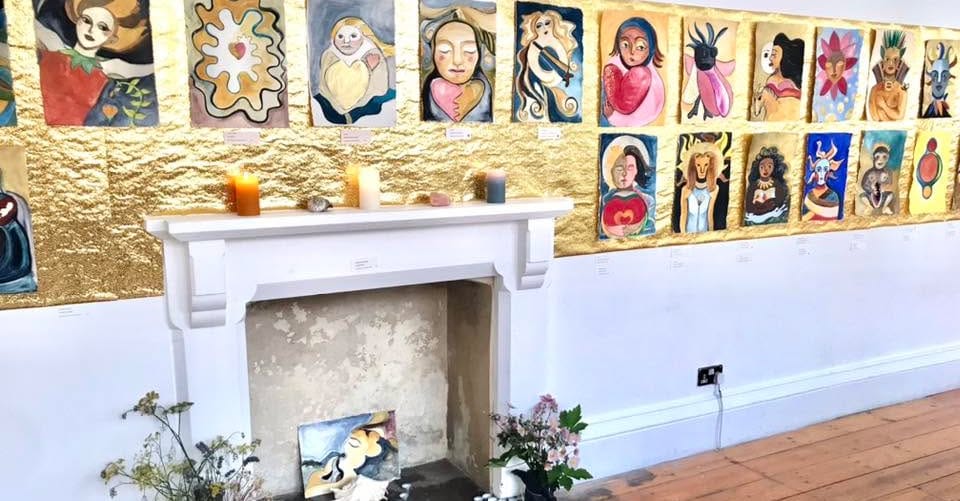
In my painting practice I use spring water, egg yolk and earthy pigments to create the many faces of the Goddess and Godxes that flow in my imagination.
The many faces mean I can find full expression for my lived experience, sharing that with others through recognisable figures such as Nyx of the night, or Nematona of the sacred groves. I also make the Goddesses I need, including the Goddess of Shame and the Goddess of Disappointments. These console us and help us navigate painful times and conflict.
Each person's Goddess connection is unique. For me, painting is an important part of my meditative and intuitive process.
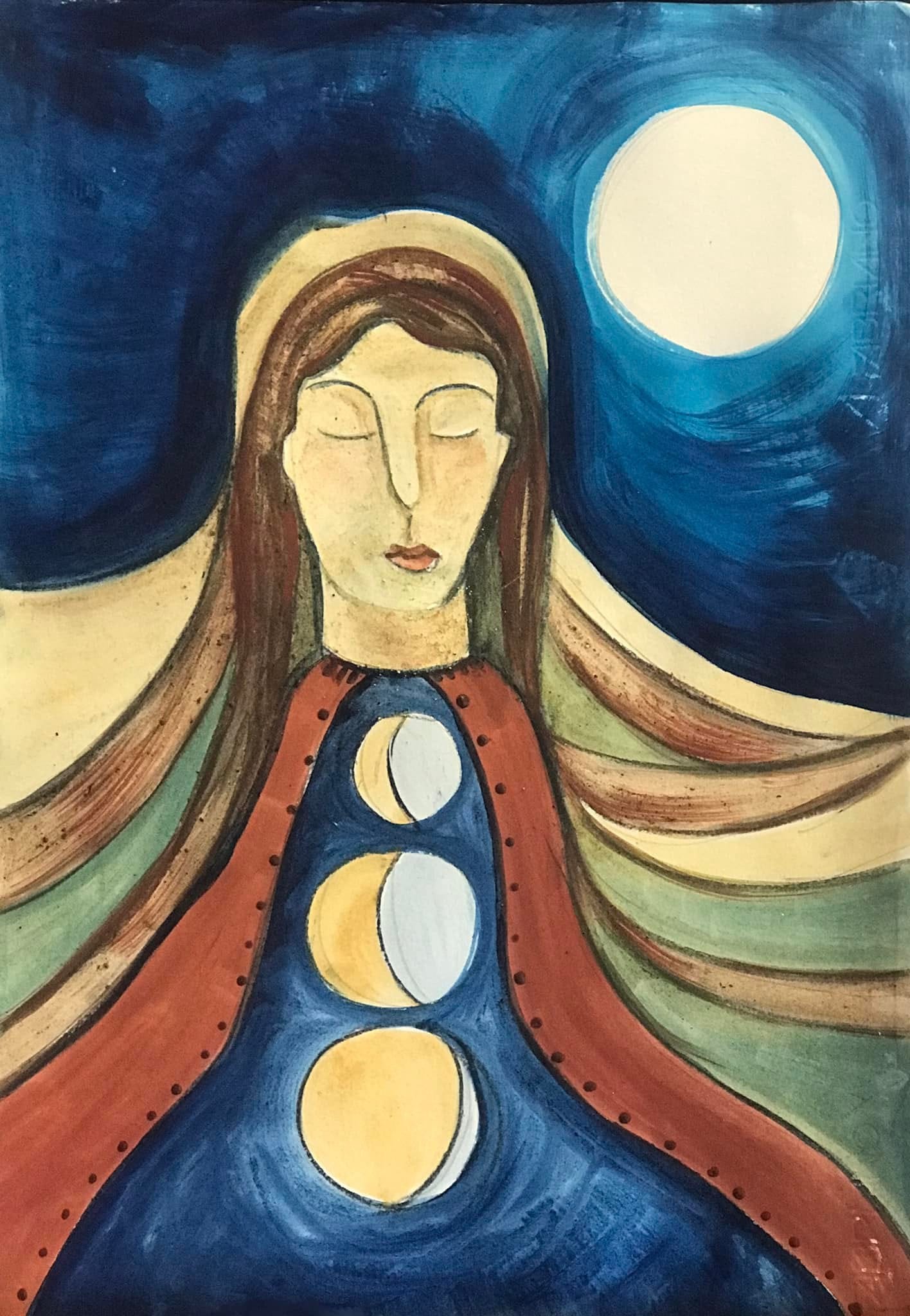

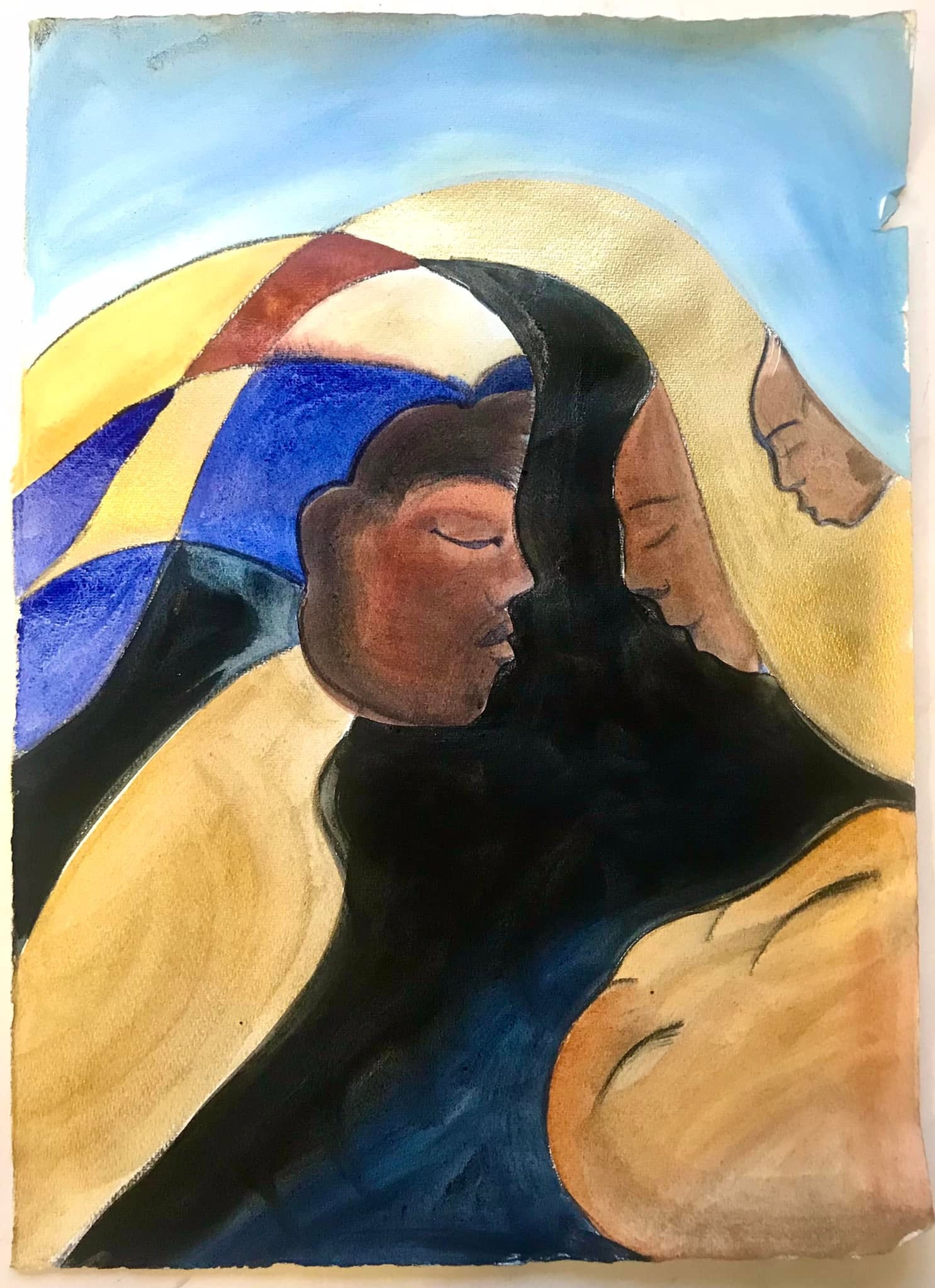
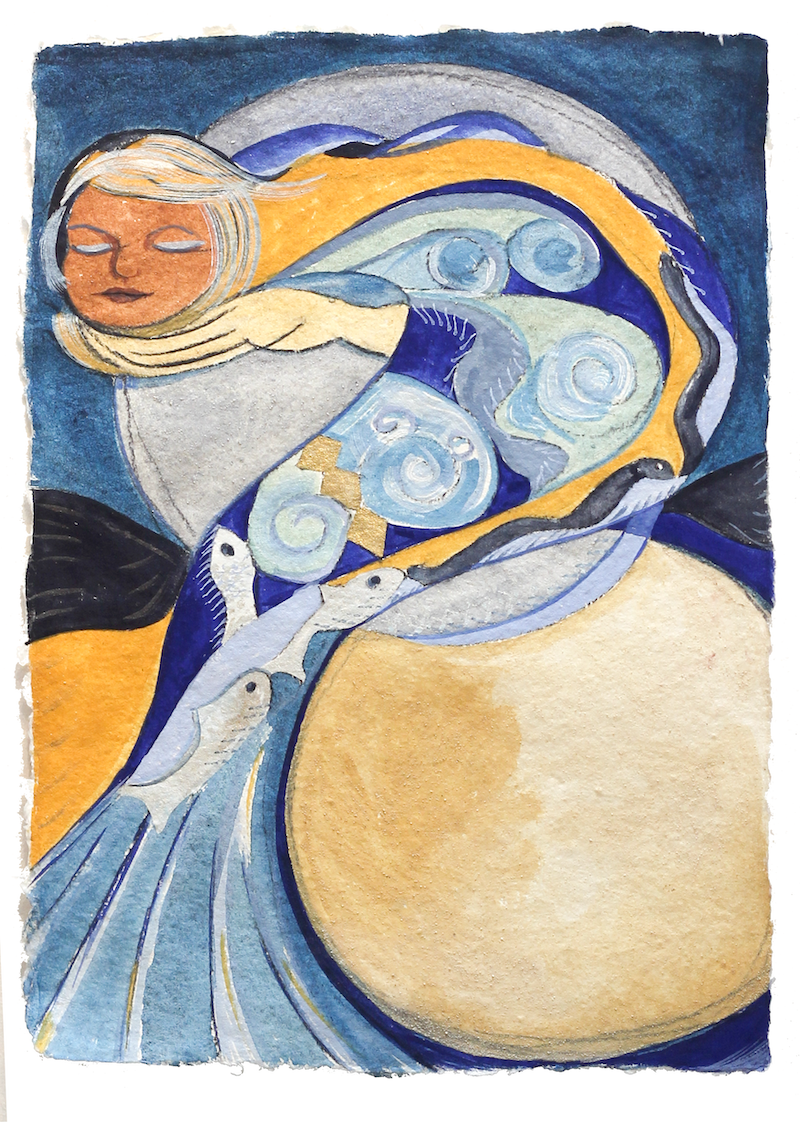
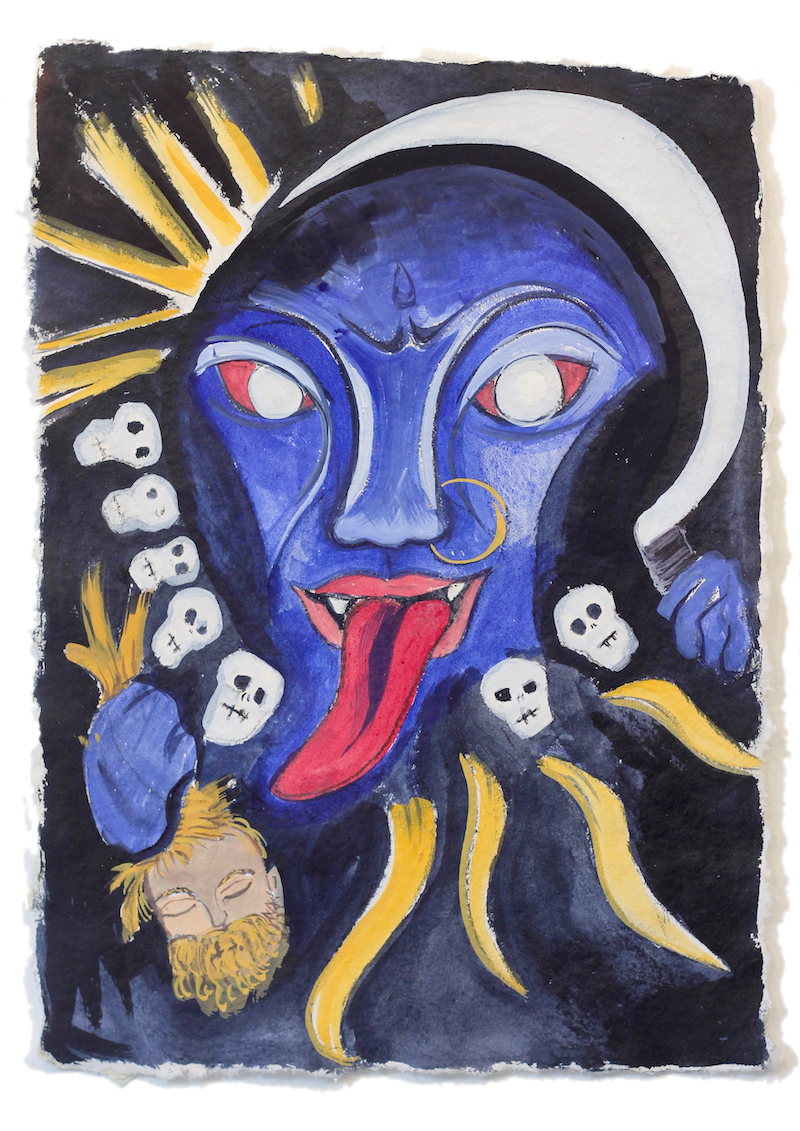
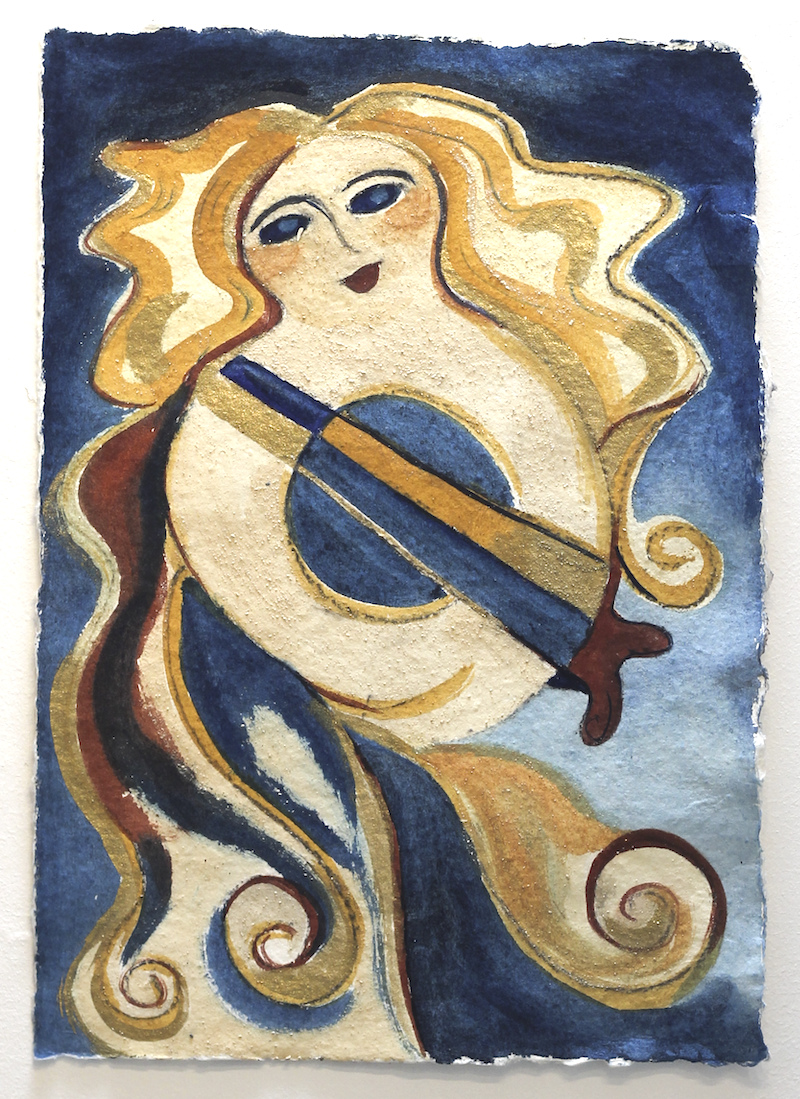
Selection of works from 100 Goddesses, Egg Tempera and Pigment on Hand Made paper, Sarah Dixon 2022. From top left - Nyx, Venus, Yemaja, Sabrina, Kali, Cerridwen.
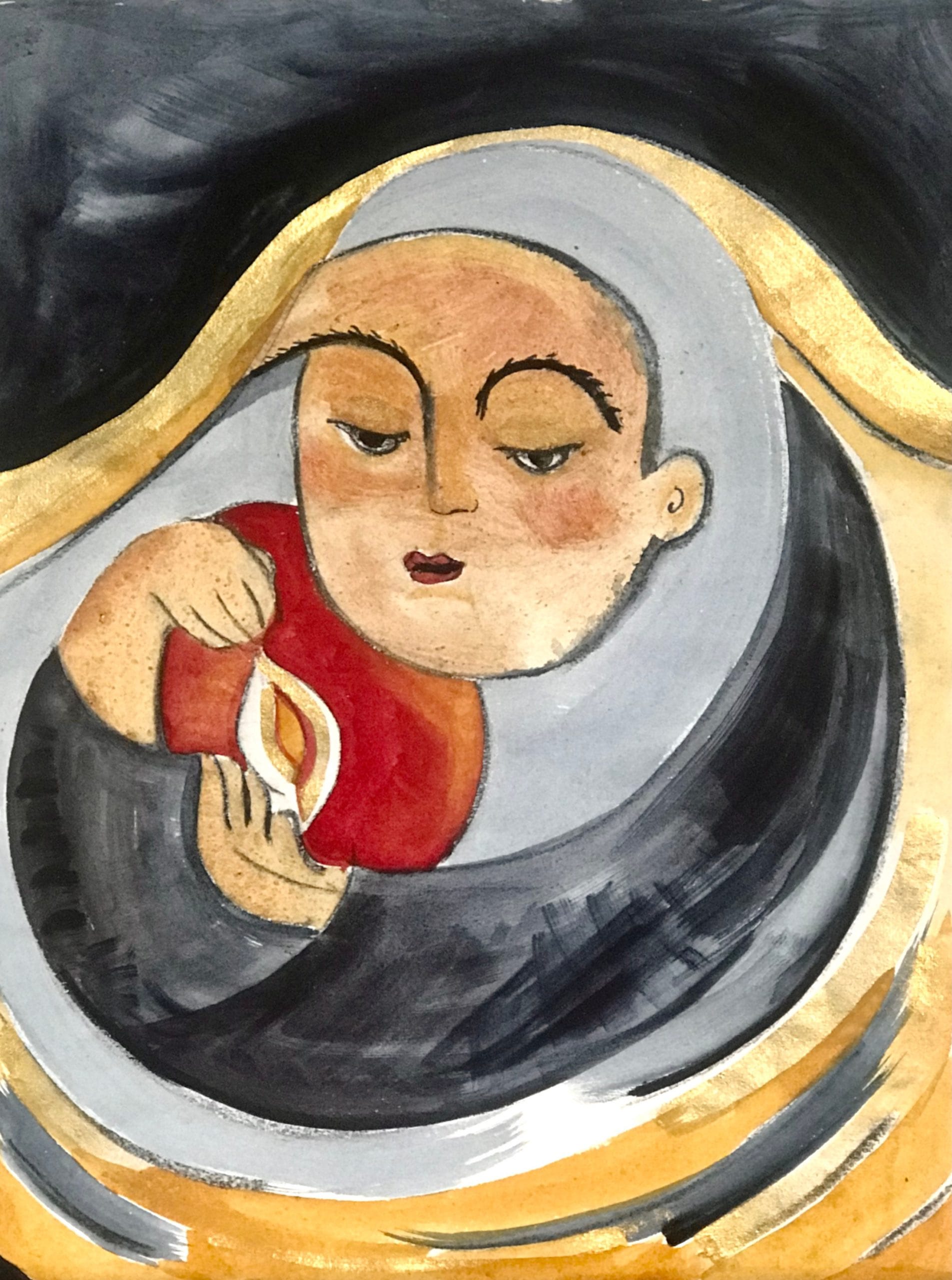
As a former biologist, and now a Priestess of Cuda with a recent MA in Performance: Society, Sarah Dixon has an artistic practice exploring the intersections of science-magic-art. She makes material, embodied and conceptual forays into meaning and culture for kinder, more inclusive relationships through systems of living and non-living beings.
You can see some of the 100 Goddesses at Sarah's upcoming show at Star Anise cafe (13 April - 23 May 2025). The full collection can be viewed online, with commissions, originals and prints available.
The PriestXess trainings are ongoing, and Stroud Goddess Temple welcomes drop-in visitors. You can stay in touch and check the latest events and opening times via Facebook.
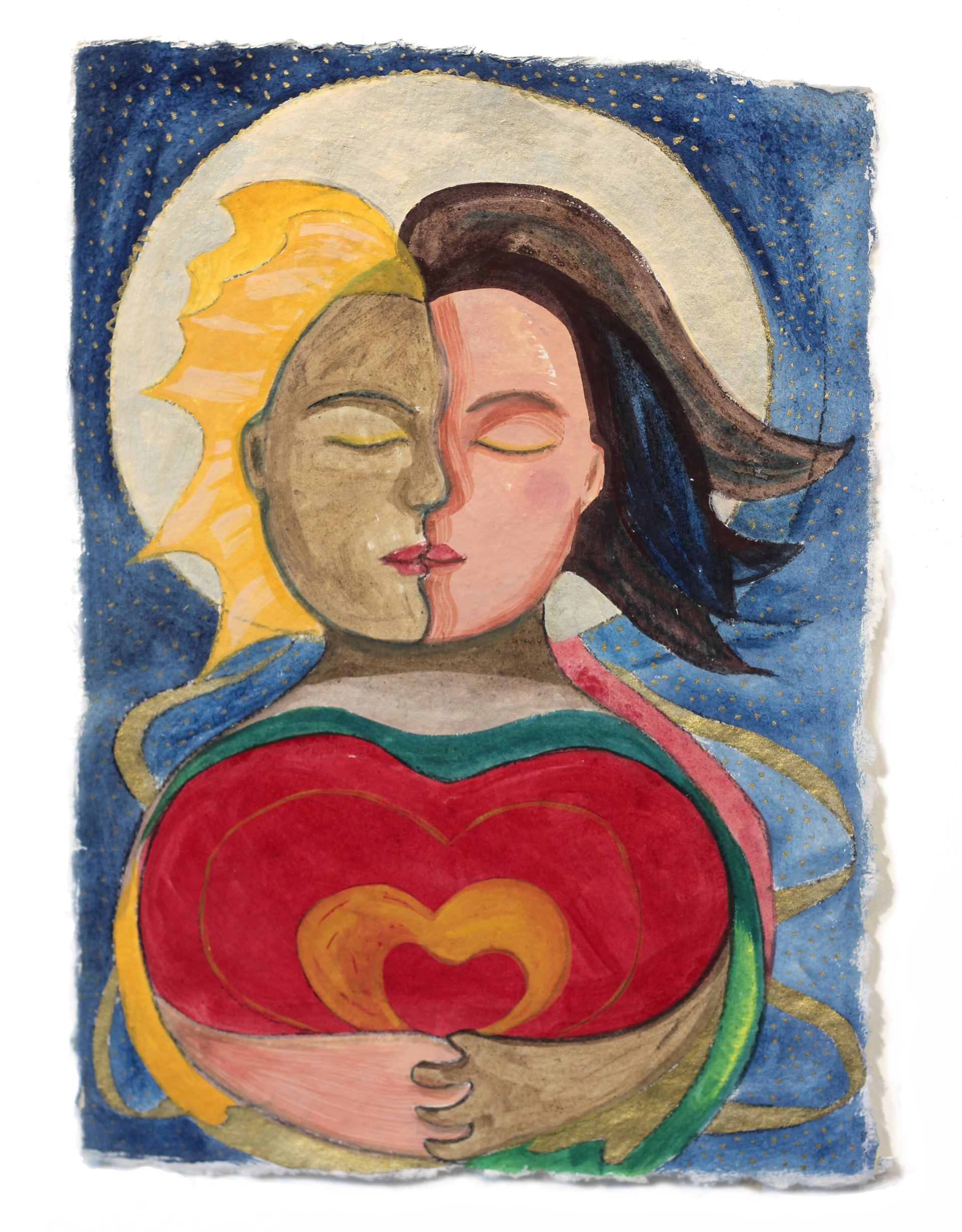

Amplify Stroud is supported by Dialect rural writers collective. Dialect offers mentorship, encouragement and self-study courses as well as publishing.
You can find out more at https://www.dialect.org.uk/




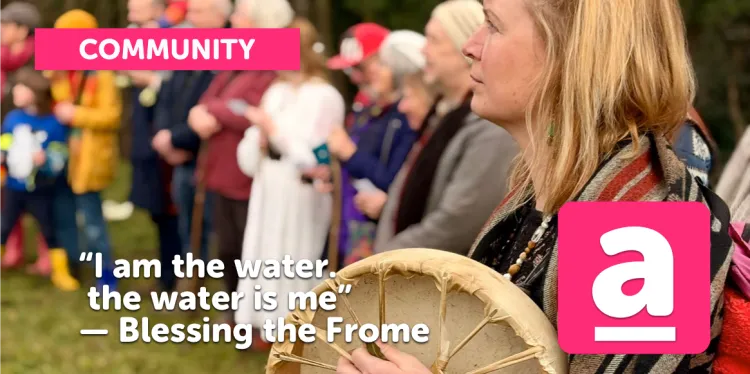

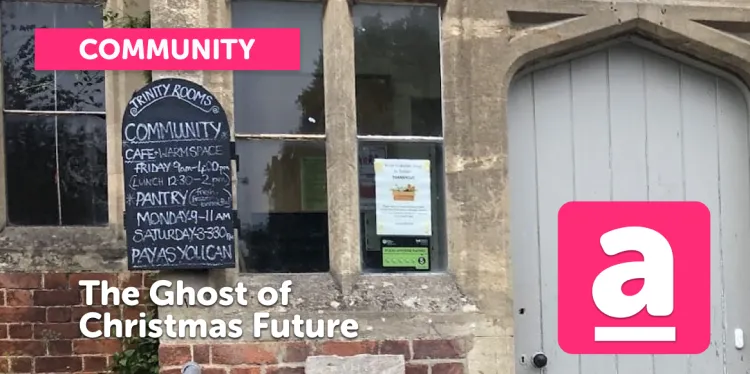


Member discussion